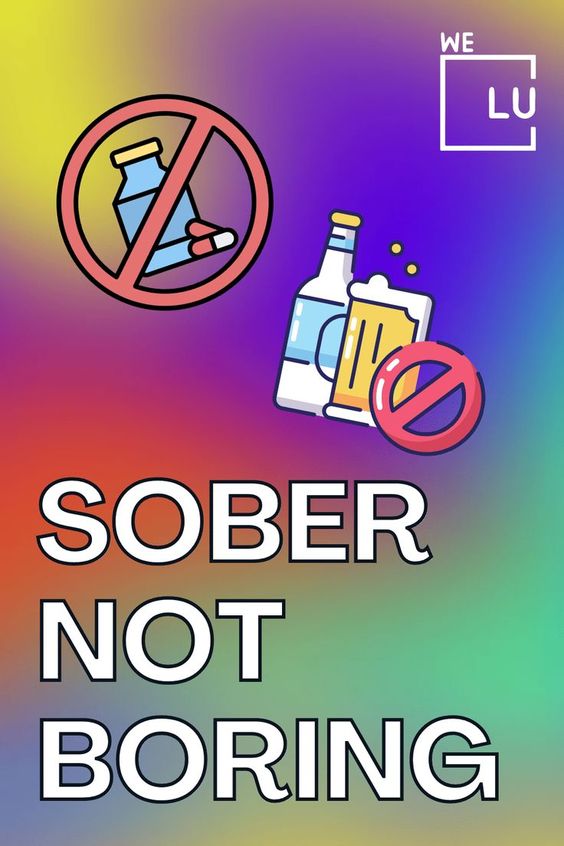What Does Stay Sober Mean?
The stay sober meaning is multifaceted beyond abstaining from alcohol or drugs. It represents a profound commitment to a lifestyle centered around sobriety, mental clarity, and overall well-being.
Staying sober involves a conscious choice to refrain from consuming substances that can impair judgment, alter perception, or lead to dependence. For individuals recovering from addiction, staying sober goes beyond a personal decision—it becomes a fundamental aspect of their journey toward healing and reclaiming control over their lives. It signifies a dedication to breaking free from the destructive cycle of substance abuse and embracing healthier alternatives.
To stay sober, one must navigate various challenges and triggers that may threaten their commitment. These challenges may include social pressures, emotional upheavals, or even internal battles with cravings and temptations. It requires resilience, self-awareness, and a set of effective strategies to overcome these obstacles and maintain sobriety.
Establishing a strong support network is crucial for staying sober. Surrounding oneself with understanding friends, family, or support groups can provide invaluable encouragement, guidance, and accountability. These individuals serve as pillars of strength during challenging times, offering a safe space to share experiences, seek advice, and find solace.
Moreover, staying sober often necessitates a focus on self-care. Engaging in activities that promote physical, mental, and emotional well-being helps individuals build a strong foundation for maintaining sobriety. This might include regular exercise, practicing mindfulness or meditation, pursuing hobbies, and adopting healthy coping mechanisms such as journaling or therapy. By prioritizing self-care, individuals enhance their resilience, reduce stress, and cultivate a positive mindset, vital in sustaining sobriety.
Recognizing and managing triggers is another crucial aspect of staying sober. Triggers are external or internal cues that can evoke cravings or prompt relapse. They can vary widely, from specific people, places, or events associated with substance use to emotional states, such as stress or loneliness. Awareness of these triggers empowers individuals to proactively avoid or manage them, often through strategies like developing healthy routines, practicing stress management techniques, or seeking professional support when needed.
Staying sober is not a solitary pursuit; it requires ongoing education and a commitment to personal growth. Expanding knowledge about addiction, attending therapy or counseling sessions, and participating in support groups contribute to a deeper understanding of oneself and the underlying factors that may contribute to substance abuse. This self-reflection fosters personal development, resilience, and the ability to make healthier choices.
Staying sober is a continuous journey of self-discovery, healing, and transformation. It is about embracing a life not defined by substances but by authentic connections, personal growth, and a deep appreciation for the present moment. By prioritizing sobriety and implementing strategies that support mental, emotional, and physical well-being, individuals can embark on a path of long-lasting recovery, empowering themselves to thrive in a substance-free existence.
Reasons To Stay Sober
Staying sober brings many compelling reasons that motivate individuals to lead a substance-free life. While the specific reasons may vary from person to person, here are some common and significant motivations for choosing sobriety:
- Health and Well-being: One of the most compelling reasons to stay sober is prioritizing physical and mental health. Substance abuse can lead to various detrimental health effects, including liver damage, heart problems, impaired cognition, and an increased risk of mental health disorders. By staying sober, individuals can experience improved overall well-being, increased energy levels, better sleep, and enhanced mental clarity.

Skip To:
Learn More:
- Free Sobriety Calculator, Online Sober Calculator & Sober Day Counter. Relapse Prevention Sober Calculator & AA Sobriety Calculator.
- Inspirational Addiction Recovery Stories. View Real-life Sobriety Stories. Recovery Addicts Stories.
- 100 Sobriety Quotes. Top Quotes About Sobriety to Keep Motivated & Encouraged. Celebrate Recovery Quotes.
- Tips For Early Sobriety
- Sobriety Starts Here
- 50 Sobriety Gifts Ideas
- Sobriety Recovery Success Story, Kristine’s Journey
- Comfortable Drug And Alcohol Detox, First Step To Sobriety
- Personal Freedom: Substance dependence can significantly restrict personal freedom and autonomy. Addiction often dictates one’s actions and choices, resulting in losing control and feeling trapped. By staying sober, individuals regain their freedom to make decisions aligned with their values, passions, and aspirations, allowing them to live a life driven by personal agency and self-determination.
- Improved Relationships: Substance abuse can strain and damage relationships with family, friends, and romantic partners. Staying sober provides an opportunity to rebuild and strengthen these relationships, fostering trust, open communication, and healthier connections. Sobriety allows individuals to show up as their authentic selves and engage in meaningful, fulfilling relationships.
- Emotional Well-being: Substance abuse can exacerbate emotional challenges and contribute to mood swings, anxiety, and depression. By staying sober, individuals can experience emotional stability, increased self-esteem, and improved mental well-being. Sobriety enables individuals to confront and address underlying emotional issues, leading to personal growth, resilience, and a more balanced emotional state.
- Financial Stability: Substance abuse can severely impact an individual’s financial situation. The cost of purchasing substances, legal issues, and losing employment due to addiction can lead to financial instability and debt. Staying sober allows individuals to regain control of their finances, make responsible financial decisions, and allocate resources toward personal goals, creating a foundation for long-term financial stability.
- Personal Growth and Fulfillment: Sobriety opens the door to personal growth and self-discovery. Staying sober allows individuals to explore their passions, develop new interests, and pursue meaningful goals. Sobriety provides a clear mindset and the ability to fully engage with life’s opportunities, allowing individuals to experience a sense of purpose, fulfillment, and personal transformation.
- Setting a Positive Example: By staying sober, individuals become role models for others struggling with addiction or considering a substance-free lifestyle. Demonstrating resilience, courage, and determination can inspire and encourage others to seek help and embrace sobriety, contributing to positive change within communities and society.
In summary, staying sober offers numerous benefits, including improved physical and mental health, personal freedom, stronger relationships, emotional well-being, financial stability, personal growth, and the opportunity to be a positive influence. By embracing sobriety, individuals can unlock a life of fulfillment, purpose, and authentic connection with themselves and those around them.
Get Help. Get Better. Get Your Life Back.
Searching for Accredited Drug and Alcohol Rehab Centers Near You?
Even if you have failed previously and relapsed, or are in the middle of a difficult crisis, we stand ready to support you. Our trusted behavioral health specialists will not give up on you. When you feel ready or just want someone to speak to about therapy alternatives to change your life call us. Even if we cannot assist you, we will lead you to wherever you can get support. There is no obligation. Call our hotline today.
(844) 597-1011Popular Staying Sober FAQs
-
Does The Staying Sober Quotes Help?
Reading staying sober quotes can be a source of inspiration and motivation for individuals on their journey to sobriety. Quotes that resonate with personal experiences and convey messages of strength, resilience, and hope can provide support and encouragement. While quotes alone may not be sufficient to maintain sobriety, they can remind of the importance of staying sober and reinforce one’s commitment to a substance-free life.
-
How To Stay Sober Without AA?
Explore alternatives such as seeking professional help from addiction counselors or therapists, building a support network through non-AA support groups, engaging in individual therapy, developing healthy habits, and finding alternative support programs.
-
How To Stay Sober From Alcohol?
Avoid triggers, build a support system, develop coping mechanisms, seek professional help, educate yourself about alcohol’s effects, set clear boundaries, and celebrate milestones in sobriety.
Alcohol Abuse Factsheet
Alcohol Abuse Overview
An unhealthy drinking pattern that interferes with daily tasks. Alcohol abuse occurs when a person has a major drinking problem but is not yet physiologically dependent on alcohol. The failure to fulfill significant work, school, or family obligations is a symptom, as are legal or social issues or drinking in risky settings, as when operating a motor vehicle. Support groups, counseling, or relapse prevention medication are all possible treatment options.
Alcohol Addiction Treatment
Treatment may include support groups, counseling, or medication to prevent relapse.
- Medical procedure: Alcohol detoxification.
- Lifestyle drug: Abstinence.
- Medications: Sedatives, Vitamins, Alcoholism medication, and Antiparasitics.
- Therapy: Counseling psychology and Family therapy.
Alcohol Abuse Symptoms
The failure to fulfill significant work, school, or family obligations is a symptom, as are legal or social issues or drinking in risky settings, as when operating a motor vehicle.
- Behavioral: antisocial behavior, impulsivity, self-harm, or lack of restraint.
- Mood: anxiety, general discontent, or loneliness.
- Gastrointestinal: nausea or vomiting.
- Whole body: craving or blackout.
- Also common: are physical dependence, depression, or headaches.
Alcohol Abuse Statistics
High-Intensity Drinking is a new trend discovered by the National Institute on Alcohol Abuse and Alcoholism (NIAAA). Alcohol consumption “at levels that are two or more times the gender-specific binge drinking thresholds” is included in the definition of high-intensity drinking (HID).
There isn’t much peer-reviewed research because it’s still a new trend. According to the information that is currently available, HID is widespread among binge drinkers and is frequently related to important occasions, particularly 21st birthdays and athletic events.
141,000
140,557 Americans die from the effects of alcohol in an average year.
Source: NIAAA
10%
1-in-10 Americans over the age of 12 have Alcohol Use Disorder.
Source: NIAAA
60%
Over half of Americans increased their alcohol consumption during COVID-19 lockdowns.
Source: NIAAA

Get Your Life Back
Find Hope & Recovery. Get Safe Comfortable Detox, Addiction Rehab & Dual Diagnosis High-Quality Care.
Hotline(844) 597-1011
How To Stay Sober?
Staying sober is a transformative journey that requires commitment, perseverance, and the implementation of effective strategies. Here are some essential tips for staying sober:
- Build a Support Network: Surround yourself with individuals who support your sobriety goals. Connect with friends, family, or join support groups where you can share experiences, seek guidance, and receive encouragement during challenging times.
- Practice Self-Care: Prioritize self-care to nurture your physical, mental, and emotional well-being. Engage in activities that promote relaxation, such as exercise, meditation, or hobbies that bring you joy and fulfillment.
- Avoid Triggers: Identify and avoid triggers that may tempt you to relapse. This could involve avoiding certain people, places, or situations associated with substance use. Replace old routines with healthy alternatives to reduce the risk of cravings.
- Develop Coping Mechanisms: Find healthy ways to cope with stress, anxiety, and negative emotions. Experiment with breathing exercises, journaling, or talking to a trusted friend or therapist to navigate challenging moments without turning to substances.
- Set Realistic Goals: Set achievable short-term and long-term goals to keep yourself focused and motivated on the path to sobriety. Celebrate milestones along the way to acknowledge your progress and reinforce your commitment.
- Seek Professional Help: Don’t hesitate to contact addiction specialists, therapists, or counselors who can provide professional guidance and support. They can help you develop personalized strategies, address underlying issues, and navigate the complexities of maintaining sobriety.
- Practice Mindfulness: Cultivate mindfulness by staying present at the moment and being aware of your thoughts and emotions. Mindfulness can help you recognize and manage cravings, make conscious choices, and respond to triggers more healthily.
- Make Lifestyle Changes: Assess your lifestyle and make necessary adjustments to create a supportive environment for your sobriety. This might involve distancing yourself from toxic relationships, adopting a healthier routine, and embracing activities that promote personal growth and well-being.
- Celebrate Sobriety: Celebrate your sober achievements to reinforce positive behavior. Reward yourself with non-alcohol-related treats, engage in activities you enjoy, and share your milestones with your support network. Recognize that each day sober is a significant accomplishment.
- Stay Committed: Remember that staying sober is a lifelong commitment. Embrace the journey, stay focused on your goals, and embrace the positive changes that sobriety brings to your life.
By implementing these tips for staying sober, you can build a strong foundation for a fulfilling, substance-free life. Remember that everyone’s journey is unique, and finding strategies that work best for you is important. Stay resilient, be patient with yourself, and seek support whenever needed.
First-class Facilities & Amenities
World-class High-Quality Addiction & Mental Health Rehabilitation Treatment
Rehab Centers TourRenowned Addiction Centers. Serene Private Facilities. Inpatient rehab programs vary.
Addiction Helpline(844) 597-1011Proven recovery success experience, backed by a Team w/ History of:
15+
Years of Unified Experience
100s
5-Star Reviews Across Our Centers
10K
Recovery Success Stories Across Our Network
- Low Patient to Therapist Ratio
- Onsite Medical Detox Center
- Comprehensive Dual-Diagnosis Treatment
- Complimentary Family & Alumni Programs
- Coaching, Recovery & Personal Development Events
Is the Stay Sober Merch Helpful for the Recovery Journey?
The decision to stay sober is a deeply personal and transformative journey. While staying sober merchandise, such as a stay sober hoodie, stay sober shirt, or stay sober bracelet, can serve as visual reminders of one’s commitment, it’s important to understand that their effectiveness in the recovery journey may vary from person to person.
For some individuals, wearing stay sober merchandise can symbolize pride and determination, reminding them of their choice to live a substance-free life. The stay sober hoodie, shirt, or bracelet can be a personal statement, allowing individuals to express their commitment to sobriety and potentially spark conversations promoting awareness and support.

Additionally, stay sober merchandise can provide a sense of belonging and camaraderie within the recovery community. Seeing others wearing similar items can create a sense of unity and solidarity, fostering connections and support among individuals on similar paths.
However, it’s crucial to recognize that stay sober merchandise alone does not guarantee sobriety or replace the need for comprehensive recovery strategies. Recovery is a complex process that involves various factors, including therapy, support networks, coping mechanisms, and personal growth.
Ultimately, the value of stay sober merchandise lies in its ability to serve as a personal reminder and catalyst for conversations about sobriety. If wearing such items resonates with you and reinforces your commitment to staying sober, they can be helpful in your recovery journey. However, it’s essential to complement their presence with comprehensive support systems, professional guidance, and a proactive approach to maintaining sobriety.
World-class, Accredited, 5-Star Reviewed, Effective Addiction & Mental Health Programs. Complete Behavioral Health Inpatient Rehab, Detox plus Co-occuring Disorders Therapy.
CALL(844) 597-1011End the Addiction Pain. End the Emotional Rollercoaster. Get Your Life Back. Start Drug, Alcohol & Dual Diagnosis Mental Health Treatment Now. Get Free No-obligation Guidance by Substance Abuse Specialists Who Understand Addiction & Mental Health Recovery & Know How to Help.
Stay Sober With The We Level Up Dual Diagnosis Treatment
The definition of dual diagnosis, also known as co-occurring disorders, can vary among institutions. Generally, it refers to simultaneously treating a substance use disorder and a mental health disorder. Treating individuals with co-occurring disorders is a crucial aspect of our inpatient treatment. Co-occurring disorders are strongly linked to substance abuse.
We create treatment plans that address withdrawal symptoms, the psychological aspects of drug use, and managing underlying mental health disorders to set clients up for success. A comprehensive mental health assessment identifies treatment possibilities. Our dual diagnosis treatment center provides access to mental health counselors, medical professionals, behavioral therapy, and medication treatment, ensuring the highest quality of care.
We understand the intricate relationship between mental and substance abuse disorders, which can result in a destructive cycle of addiction. We specialize in dual-diagnosis cases, offering the best chance for true healing and long-lasting recovery.
Recognizing that you may have a mental illness can be challenging. However, treating substance abuse becomes much easier once you receive a proper diagnosis and treatment. Only qualified medical professionals can diagnose these underlying conditions. If you suspect you have a co-occurring disorder, we encourage you to seek a reputable treatment center to begin your journey to recovery. Contact We Level Up today.
Experience Transformative Recovery at We Level Up Treatment Centers.
See our authentic success stories. Get inspired. Get the help you deserve.
Start a New Life
Begin with a free call to an addiction & behavioral health treatment advisor. Learn more about our dual-diagnosis programs. The We Level Up Treatment Center Network delivers recovery programs that vary by each treatment facility. Call to learn more.
- Personalized Care
- Caring Accountable Staff
- World-class Amenities
- Licensed & Accredited
- Renowned w/ 100s 5-Star Reviews
We’ll Call You
Staying Sober from Alcohol & Alcoholism Treatment Informative Video
Alcoholism, also known as alcohol addiction or dependence, is a condition that results from excessive consumption of alcohol. This disorder is characterized by repetitive and extreme drinking habits that can result in addiction and adversely affect an individual’s life. Various methods and tactics are implemented to address alcoholism and aid people in overcoming the disorder and ceasing harmful drinking behavior. These techniques focus on addressing the problem’s underlying causes and assisting the person in their journey toward recuperation.
Search We Level Up Stay Sober Resources
Sources
- National Institute on Drug Abuse (NIDA) – Tips for Teens: Substance Abuse Prevention Website: https://teens.drugabuse.gov/parents/take-action/prevention-tips
- Substance Abuse and Mental Health Services Administration (SAMHSA) – Tips for Staying Sober During the Holidays Website: https://www.samhsa.gov/
- Centers for Disease Control and Prevention (CDC) – Tips for Preventing Prescription Drug Misuse and Abuse Website: https://www.cdc.gov/
- National Institute on Alcohol Abuse and Alcoholism (NIAAA) – Tips for Cutting Down on Drinking Website: https://www.niaaa.nih.gov/alcohol-health/overview-alcohol-consumption/moderate-binge-drinking
- U.S. Department of Health and Human Services (HHS) – Tips for Talking to Your Teen About Drugs Website: https://www.hhs.gov/ash/oah/adolescent-development/substance-use/drugs/talking-to-your-teen-about-drugs/index.html
- National Council on Alcoholism and Drug Dependence (NCADD) – Tips for Families Coping with Addiction Website: https://www.ncadd.org/family-friends/there-is-help/family-disease
- Office of National Drug Control Policy (ONDCP) – Tips for Preventing Opioid Misuse and Overdose Website: https://www.whitehouse.gov/
- MedlinePlus – Substance Use Recovery Tips Website: https://medlineplus.gov/ency/patientinstructions/000949.htm
- National Survey on Drug Use and Health (NSDUH) – Tips for Parents to Prevent Substance Use in Children and Adolescents Website: https://www.samhsa.gov//tips-parents-prevent-youth-substance-use
- National Institute of Mental Health (NIMH) – Tips for Managing Stress and Mental Health in Recovery Website: https://www.nimh.nih.gov/health/publications/tips-for-managing-stress/index.shtml


